
Breastfeeding is on the rise in the 21st century. However, even with all of the evidence-based research and verification from health care professionals, there are still some strong barriers to breastfeeding. Research and case studies have associated how child sexual abuse, intimate partner violence and birth trauma suffered by the mother and the baby can interfere with breastfeeding initiation and duration. By dissecting some of the research and case studies, this presentation identifies how trauma, either endured by mother, baby, or both, can lead to failure to initiate breastfeeding, latch issues, milk supply problems, painful feeds and early cessation of breastfeeding. Both psychological and physiological damage can occur during this delicate post-partum period. This presentation will help the provider to detect the sometimes subtle signs of trauma. By using the research and case studies, providers will learn how to best support women who are struggling with the backlash of trauma and abuse. Once trauma has been identified, taking care to problem solve is crucial for initiating and sustaining breastfeeding under difficult circumstances.
IBLCE Content Outline:
1 L Cerp (I, V, VI, VII)
This is the story of the FreMo Birth Centre in the informal settlement of Kawangware in Nairobi, Kenya. We will share the trials faced and the incredible successes achieved in spite of running with minimal funds and few resources. Into its 12th year, with a consistent 96% normal birth rate including twins, breech, and VBAC, low number of complications with zero maternal mortality, normal birth has again become, well, “normal”. We hope you are inspired by this story of respectful, compassionate, and safe maternity care and emboldened in your resolve to work for better birth.
1 R Cerp (III, IV, V, VI, VII)
The Birth in the Time of COVID (BITTOC) project is a mixed-method, longitudinal study investigating the pandemic-related experiences and mental health of women who were pregnant or have given birth during the pandemic. This presentation will report on the findings to date that include postnatal experiences, mental health, COVID-19 vaccine uptake, models of maternity care, breastfeeding and child development outcomes.
1 L Cerp (I, III, IV, V, VI, VII)
The death of a baby is a tragic and devastating event for families and also the health professionals looking after them. In Australia and New Zealand, one in 165 women who reach 20 weeks gestation will have a stillbirth. That equates to six stillborn babies every day. This presentation will discuss how good communication, education and support after perinatal loss can have a positive impact on the experience of bereaved families. The role of healthcare professionals in caring for parents who have experienced the end of a pregnancy or death of a baby will also be discussed, especially around the topic of what to do regarding breastmilk.
1 L Cerp (I, II, III, IV, V, VI, VII)
Social disadvantage has a marked negative impact on perinatal outcomes. This aligns with national and international evidence regarding the impact of disadvantage. Strategies that improve access to, and reduce fragmentation in, maternity care in addition to initiatives that address the social determinants of health may contribute to improving perinatal outcomes for socially disadvantaged women. In this presentation, Fiona will share the results of her study examining the perinatal outcomes of women in Victoria (Australia) who experience social disadvantage using population-based perinatal data collected between 1999 and 2016. The study includes the following outcome measures: Incidence of maternal admission to ICU, postpartum haemorrhage and caesarean section, perinatal mortality, preterm birth, low birthweight, and admission to SCN/NICU.
1 R Cerp (I, II, III, V, VI, VII)
Drawing on three recent systematic reviews this presentation will share the latest evidence regarding water immersion in birthing pools during labour and/or birth. It will cover women’s experiences of using birthing pools, the effects of water immersion on interventions and outcomes and the barriers/facilitators of birthing pool use from organisational and multidisciplinary professional perspectives. Collectively, this body of evidence demonstrates favourable outcomes but requires focused and consistent implementation to ensure birthing women and people have meaningful access to this non-pharmacological childbirth option.
1 R Cerp (III, IV, V, VI, VII)
This presentation first reviews reasons why vaginal breech training is important, focusing on four main areas: physical safety (maternal and neonatal morbidity and mortality), emotional wellbeing of the mother and family, autonomy and informed consent, and law and medical ethics. The second half of the presentation explains the normal process of physiological (upright) vaginal breech birth, from the rumping (birth of the fetal pelvis) to the birth of the head. Using pictures and videos, I explain and demonstrate the normal ten steps of physiological breech birth.
1 E Cerp (I, III, IV, V, VII)
Since its publication, the ARRIVE trial has upended labour management with its finding that compared with expectant management, elective induction at 39 weeks in healthy women and birthing people having first babies reduced caesareans without affecting neonatal outcomes. Is that true? Or is it merely the result of the philosophy and practices of those conducting the trial and managing the pregnancies and labours of its participants? This presentation will make the case that it is the latter.
1 R Cerp (IV, V, VII)
In Australia, over half of all women carry excess weight in pregnancy. When caring for women and birthing people with high BMI, consideration must be given to a number of linguistic, social and environmental factors, as well as clinical and policy considerations around pathways of care. This presentation will outline how to optimise care for women with high BMI throughout pregnancy, labour, birth and the postnatal period (including breastfeeding), noting the importance of stigma reduction, sensitive and supportive care by clinicians and environmental considerations to ensure the safety and comfort of women and birthing people in pregnancy care.
1 L Cerp (I, II, III, V, VI, VII)
Women continue to experience traumatic births and disrespect in the birth room. Often, they feel to blame for this, wondering if there was something they could have done differently. The birth system, on the other hand, rarely accepts any responsibility or asks if they could have done anything differently. This is because the birth system operates in a wider culture which mistrusts the female body. It is this culture that we need to challenge. In doing so, we will challenge the message that a difficult and traumatic birth is simply part of the raw deal of being female. This session will explore how attitudes in the birth room mirror those to the female body in wider culture. Through the lens of #metoo, we will consider how women are often conditioned to accept discomfort, indignity and disrespect. We will also look at the history of birth and explore the roots of the idea that ‘a healthy baby is all that matters’, allowing a culture to develop in which women’s needs come second. We will also consider the power of the collective voice to facilitate change.
1 R Cerp (V, VII)
With an emphasis on visual diagnosis using more than one hundred clinical photographs, this presentation focuses on clinical features of the newborn head and neck, emphasizing normal variants where reassurance is appropriate and pathologic findings in which further evaluation and management is warranted.
IBLCE Detailed Content Outline:
1 R Cerp (I, III, VII)
In this presentation, Dianne aims to address the lived experiences of racial and gender bias for women when accessing maternity services in early labour. Exploring why the history of patriarchal politics in midwifery and the educational disadvantage of minority groups affects their autonomy and decision-making when in early labour. She aims to explore many root causes of why black and brown women's lived experiences of suppression, have an impact on the care they receive when accessing maternity services in early labour. and why the care they receive from midwives and obstetricians impacts on the overall outcome of their labour and delivery and their decision to breastfeed.
1 E Cerp (V, VII)
Intermittent auscultation is underused as a fetal monitoring option during labour. Education about fetal monitoring in labour rarely covers intermittent auscultation, leaving midwives with little confidence in its use. This presentation provides a detailed review of evidence for the safety of intermittent auscultation, who it should be offered to, and applies a physiology informed lens to explore how to use intermittent auscultation effectively.
1 R Cerp (V, VII)
Parents with disabilities are an under-identified and often invisible consumer group within maternity and parenting services. Despite ten to twelve percent of women globally within maternity services identifying with a disability, this group of mothers continue to experience stigma and poorer outcomes than women without disability. Contributing factors include historical and cultural perspectives, lack of disability-inclusive knowledge and care by health providers, as well as inadequate adaptations to meet the specific needs of mothers with disability. This session provides an overview of the above barriers and facilitators to pregnancy, birth and early parenting for mothers with disabilities, along with strategies to provide more disability-inclusive care for women as they transition during pregnancy and birth to becoming mothers.
1 R Cerp (III, V, VII)
In this presentation Rhea will discuss what she calls ‘pain dynamics’ and explain how they impact birth outcomes. She will also describe the structural and systems issues that contribute to birth trauma.
Following this presentation participants will:
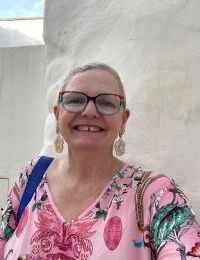
Vicki Chan
Vicki Chan is a mother and grandmother and has been a midwife for 40 years. She has a broad midwifery experience including working in Australian public and private hospitals, a birth centre, and as a homebirth midwife. She still practices as a midwife and is also now clinical facilitator and tutor for student midwives. Her passion for the work has never waned and is driven by the knowledge of the importance of the birth experience and its impact on women and families. Women have been her greatest teachers and they have taught her well. She has spoken about birth and its possibilities as an invited presenter on 5 continents and in 2011, was a co-founder of, and continues to support, the FreMo Birth Centre in Kenya.
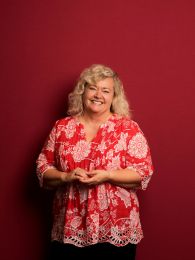
Hannah Dahlen
Hannah Dahlen is the professor of Midwifery, discipline leader of Midwifery and associate dean (Research and Higher Degree Research) in the School of Nursing and Midwifery, Western Sydney University. She has been a midwife for more than 33 years. Hannah has over 250 papers and book chapters and has strong national and international research partnerships. In 2019 Hannah was awarded a Member (AM) of the Order of Australia (General Division) in the Queen’s Birthday Honours list for her significant services to midwifery, nursing and medical education and research.
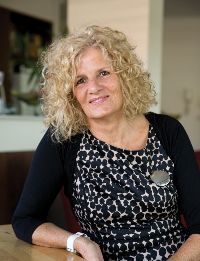
Rhea Dempsey
Rhea Dempsey is a birth educator, doula, counsellor, trainer, and author. Rhea’s understanding of birth has been gained over four decades of attending births, counselling and educating on birth issues. She is recognized as an insightful commentator on the difficulties women, who have a yearning for normal physiological birth, face in navigating contemporary birth culture. Her book Birth with Confidence: Savvy Choices for Normal Birth, explores the issue of embracing the physiological pain of birth and the importance of experienced support. While Beyond the Birth Plan: Getting Real About Pain and Power explores the deeper emotional and psychological dynamics impacting birthing potential. Rhea is the mother of three adult daughters, and five delicious home-born grandchildren.
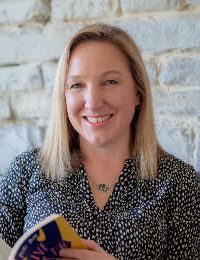
Milli Hill
Milli Hill is a writer, feminist and freelance journalist with a passion for reframing the narrative around women’s bodies. She is the author of the bestselling Positive Birth Book (2017), Give Birth like a Feminist (2019) and My Period (2021, for preteen girls). From 2012 to 2021 she founded and ran the Positive Birth Movement, a global network of antenatal discussion groups aimed at improving birth and giving women better access to support and information. As a journalist since 2013, she has written for many publications including Telegraph, Mail, Guardian, Independent, ipaper and Mother&Baby, and has appeared on BBC Radio 4, BBC Radio 2, BBC 5 Live, talkradio, LBC and many leading podcasts. Her fourth non-fiction book will be published in 2024.
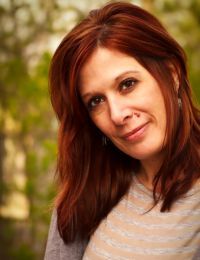
Dianne Cassidy
Dianne is an IBCLC, podcaster, author, lactation education manager and has been working with families since 2008. She has worked with thousands of families in all areas of their breast/chest feeding journey. Dianne teaches using her real-life experiences and case studies, which sets her apart in the lactation field providing a personalized and realistic experience for her audiences. Dianne’s evolution began as a clinical, patient-centred lactation consultant to a public speaker and educator, where she really shines. Her energy is contagious, and is felt by families, lactation consultants and birth workers alike.
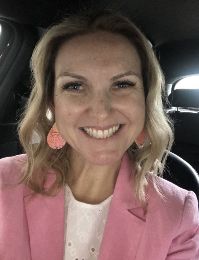
Paula Dillon
Paula has more than 20 years’ experience as a midwife and nurse, having worked in tertiary and regional hospitals across both public and private maternity care models. Gaining qualifications as an endorsed midwife 3 years ago, allows Paula to work across a wider midwifery scope in an obstetric collaborative care model. She has a keen interest in childbirth and early parenting education, reproductive health and fertility, as well as perinatal grief and loss. Supporting families and couples through pregnancy after loss is an area that Paula finds greatly rewarding, and her passion for this area stems from personal experience.
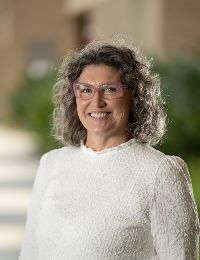
Fiona Faulks
Fiona Faulks has been a midwife for almost 30 years and has worked in metropolitan, regional and rural services in both VIC and NSW. Fiona is currently working on her PhD exploring social determinants and disparities in perinatal health for Victorian women: determining gaps in access, equity and outcomes. Fiona’s PhD explores the perinatal outcomes of women who are socially disadvantaged and experiencing common mental disorders. In addition, Fiona is exploring what barriers and enablers exist for rural women in accessing perinatal care in their own communities. Fiona expects to complete her PhD early in 2024.

Claire Feeley
Qualifying as a midwife in 2011, earning an MSc in 2015, PhD in 2019; Dr Claire Feeley has worked clinically in all areas of midwifery – specialising in physiological birth across the risk spectrum, water immersion, advocacy and change implementation. Claire has published peer-reviewed articles, monographs, professional articles and book chapters, in addition to presenting nationally and internationally. She is now a lecturer and researcher at King’s College London and a freelance consultant.
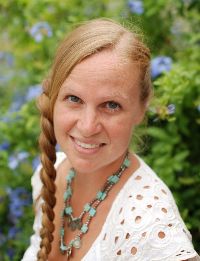
Rixa Freeze
Dr Rixa Freeze has a PhD in American Studies from the University of Iowa. Her doctoral studies focused on the history of healthcare and medicine with specialization in pregnancy, childbirth, and maternity care. Her dissertation examined why women in North America choose unassisted home births. Dr. Freeze is the founder and president of Breech Without Borders, a nonprofit dedicated to breech training, education, and advocacy. She worked as a visiting assistant professor for 9 years at Wabash College before dedicating herself full-time to Breech Without Borders. She has published numerous articles on home birth and breech birth, including a book chapter.
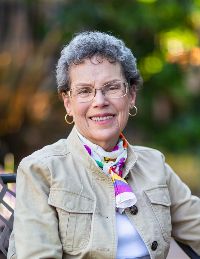
Henci Goer
Starting out as a Lamaze teacher and doula, Henci Goer’s life’s work soon became analysing and synthesizing obstetric research in order to give pregnant women, birthing people, and birth professionals access to what constitutes optimal care in childbirth. She is the author of four books: Labor Pain: What’s Your Best Strategy?, Optimal Care in Childbirth: The Case for a Physiologic Approach (co-author Amy Romano MSN, CNM), The Thinking Woman’s Guide to a Better Birth, and Obstetric Myths Versus Research Realities. In addition, she has written numerous blog posts and articles, given lectures around the world and received multiple awards.
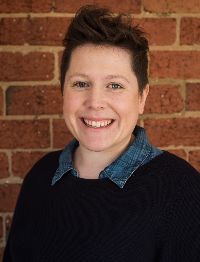
Madeline Hawke
Madeline is the lead midwife in the Pregnancy Elevated BMI Antenatal Risk reduction and Lifestyle (PEARL) clinic at Eastern Health, a multidisciplinary specialist clinic providing continuity of medical and midwifery care for women and birthing people with BMI >40kg/m2. She also works as a clinical midwifery specialist and research midwife, a sessional academic at Australian Catholic University, is a member of the inaugural Clinical Ethics Committee at Eastern Health and is completing her PhD part-time on maternity clinician communication with women and birthing people in different sized bodies in antenatal clinic.

Charlotte Lewis
Dr Lewis is currently professor of pediatrics at University of Washington School of Medicine and attending physician at Seattle Children’s Hospital. Dr Lewis leads the Seattle Children’s Multidisciplinary Infant Nutrition and Feeding Team and attends in the Newborn and Progressive Care Nurseries at the University of Washington Medical Center, where she teaches, supervises trainees, and provides patient care.
Dianne Morris
Dianne was educated as a nurse and a midwife in the UK and worked as a registered midwife in the National Health Service (NHS), and in private practice. She currently works independently in Melbourne, as a sessional midwifery lecturer, and childbirth and parenting educator in a midwifery private practice. She designs workshops for childbirth and parenting weekend retreats around Australia and the UK. As a black woman, in a white-dominated maternity system, she is easing herself gently into the academic discussion about the reasons why race, class, and gender inequalities still exist in maternity services.
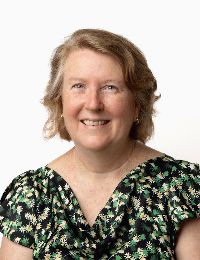
Kirsten Small
Dr Kirsten Small is an obstetrically trained educator, writer, and researcher. Her vision is to promote respectful maternity care for women, babies, families, and their care providers through education and research. Her doctoral research explored the impact of central fetal monitoring on midwives and obstetricians. She hosts the Birth Small Talk blog, sharing regular research-based updates about fetal monitoring, and runs online classes about the evidence for CTG use.
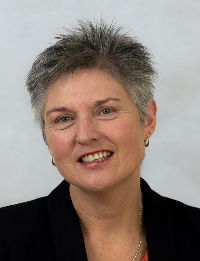
Namira Williams
Dr Namira Williams is the founder and CEO of disAbility Maternity Care. She brings to her role a long career as clinician, researcher, innovator and mother with lived experience of intellectual disability and autism. She has worked predominantly with vulnerable groups of women, including Indigenous women, young teen mothers, and women from culturally and linguistically diverse backgrounds. Key findings from Namira ‘s PhD “Travelling with two: balancing identity and risk in mothers with intellectual disability”, have strongly influenced the vision, goals and direction of disAbility Maternity Care. She was awarded ‘ACM Midwife of the Year 2013 (NSW)’.

Moffat Osoro
Moffat Osoro lives in the informal settlement of Kawangware, in Nairobi, Kenya with his wife and three children. Born in a rural area, he migrated to the city as a young man with the dream of providing safe health care for the urban poor. Witnessing the horrific circumstances and tragic outcomes for the local women in childbirth, and his wife’s experience during the birth of their own child, saw his path shifted towards maternity care. He is now a powerful advocate for the rights and wellbeing of pregnant and birthing women and has run the FreMo Birth Centre since 2011. Moffat is recognised as a leader in maternity care and is often invited to speak on matters of birth.
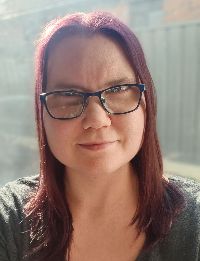
Allyson Hickey
Allyson is a DeafBlind Midwife, and mum to an 18 month old boy, living in Adelaide, South Australia. During her Midwifery studies, Allyson noticed a distinct lack of education around caring for women with disabilities and this was evident in her own pregnancy care where she experienced discrimination and coercion from maternity care providers. As a Lived Experience Educator with disAbility Maternity Care, Allyson is changing the conversation to ensure women with disabilities have equal and inclusive maternity care.